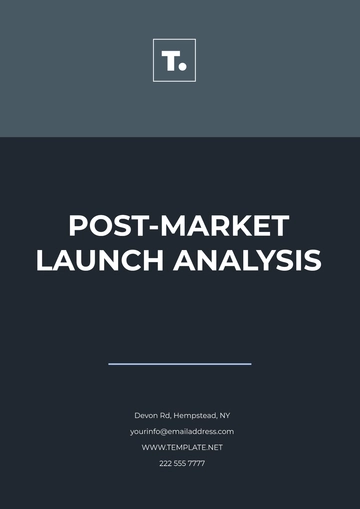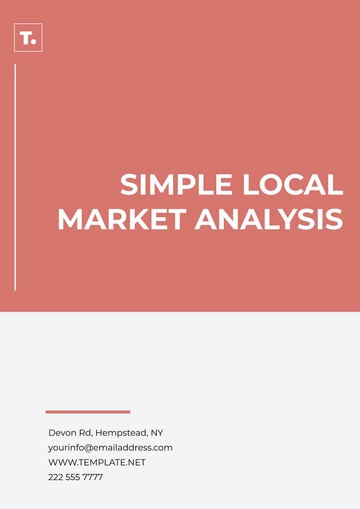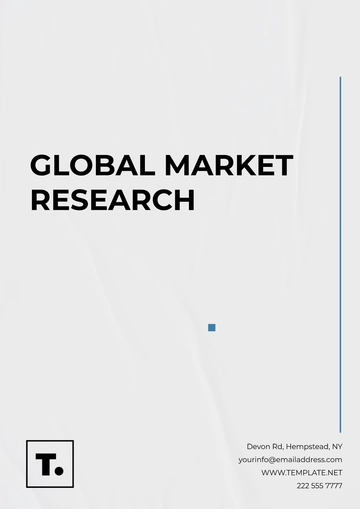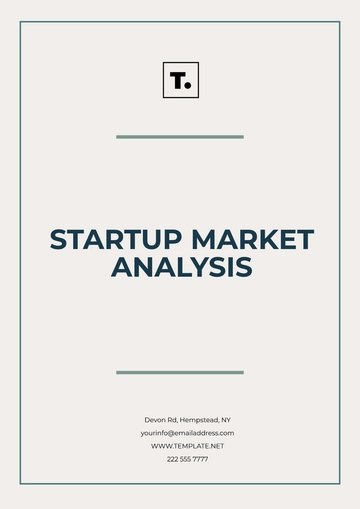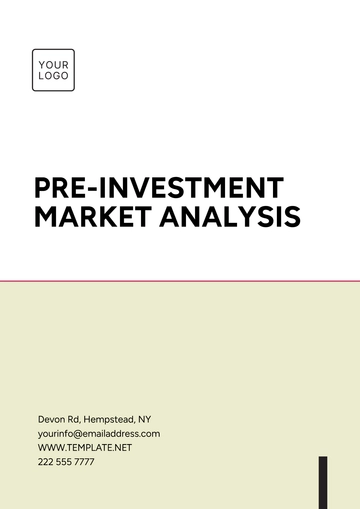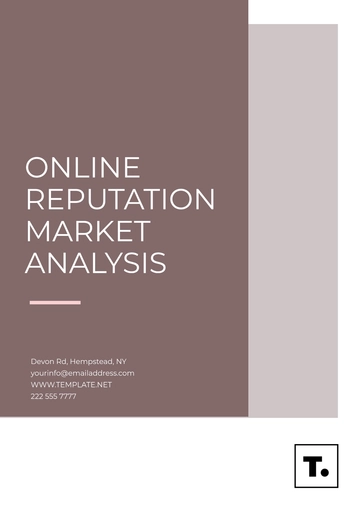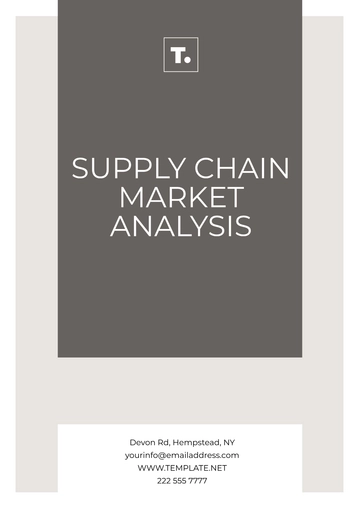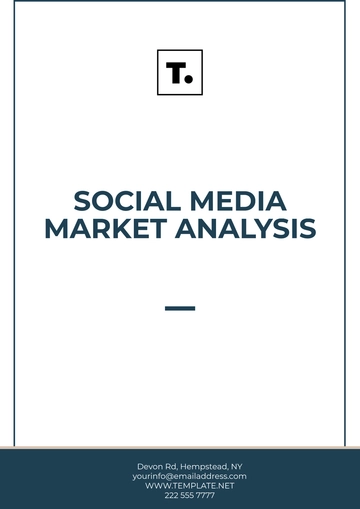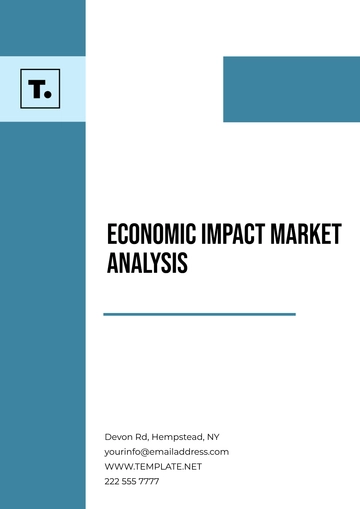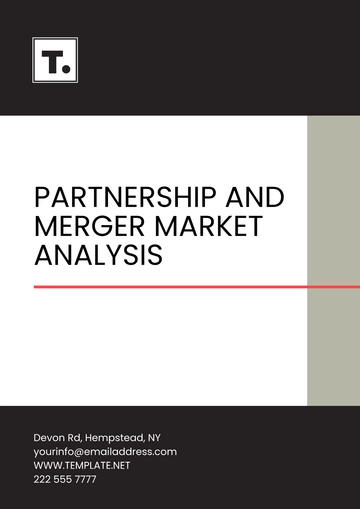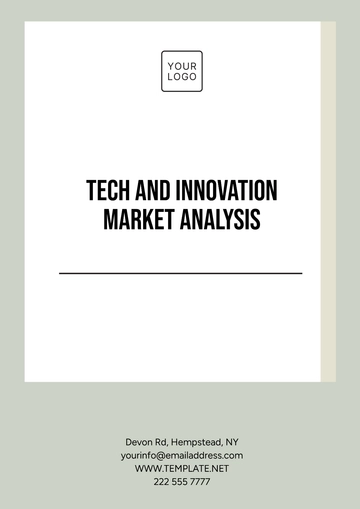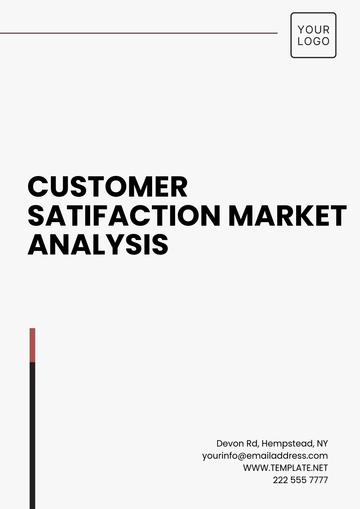Free Travel Agency Trend Analysis
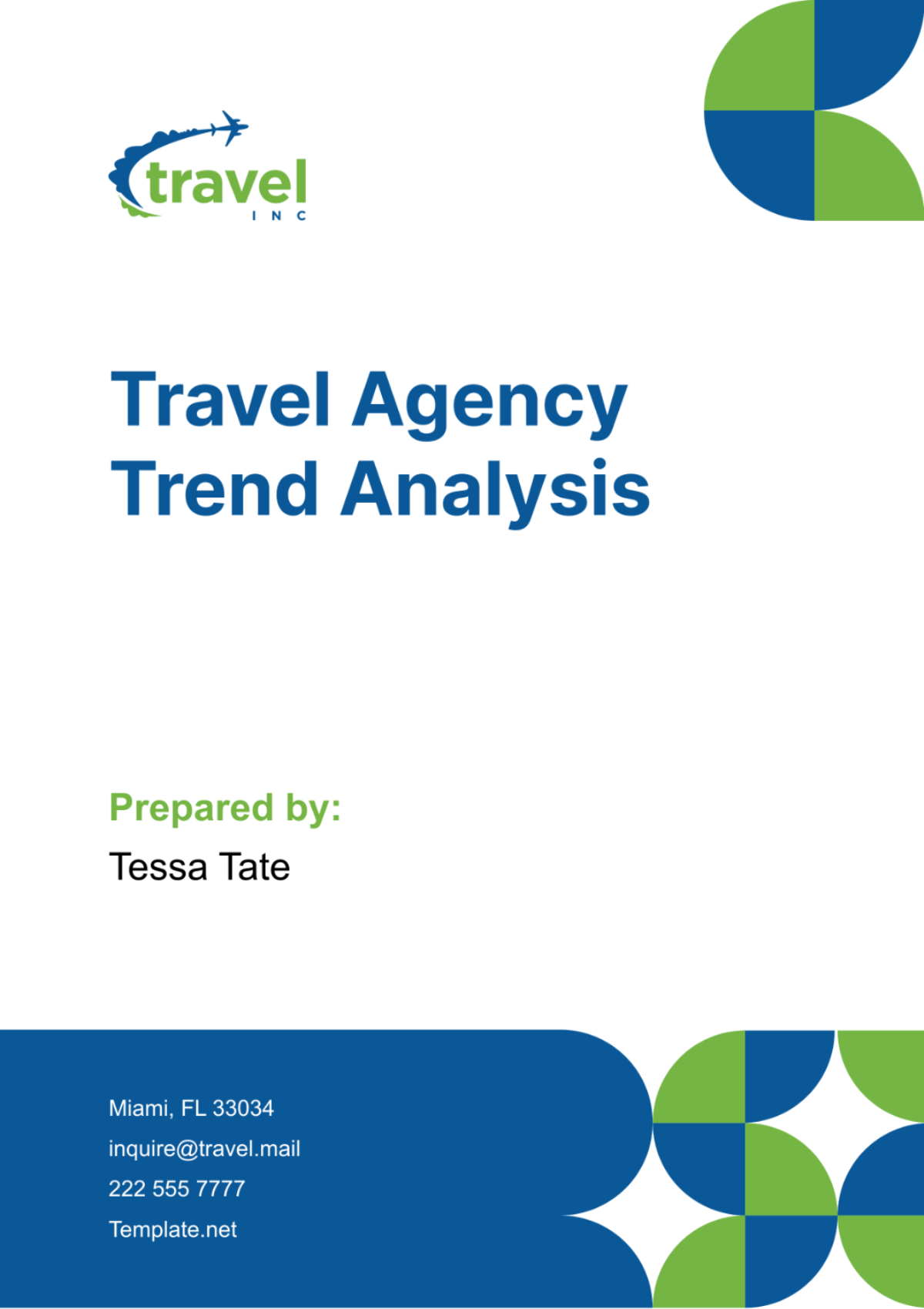
I. Introduction
In an ever-evolving travel landscape, staying ahead of emerging trends is crucial for travel agencies to remain competitive and relevant. This trend analysis aims to provide insights into the current and future trends shaping the travel industry, with a focus on how [Your Company Name] can capitalize on these trends to enhance its offerings and customer experience.
II. Consumer Preferences
Understanding consumer preferences is paramount for [Your Company Name] to tailor its services effectively. Analysis of booking patterns and market research reveals several key trends:
Trend | Description |
|---|---|
Personalization | Travelers increasingly seek personalized experiences tailored to their preferences. |
Experiential Travel | There is a growing demand for experiential travel, focusing on unique and immersive experiences. |
Sustainable Tourism | Conscious of environmental impact, travelers prioritize sustainable and eco-friendly options. |
Digital Nomadism | The rise of remote work has fueled the trend of digital nomadism, with travelers seeking longer stays in exotic locations. |
Personalization: Today's travelers seek tailored experiences that resonate with their individual preferences and interests. [Your Company Name] should leverage customer data and analytics to personalize recommendations, itineraries, and promotions, enhancing customer satisfaction and loyalty.
Experiential Travel: The shift towards experiential travel signifies a desire for authentic, immersive experiences over traditional sightseeing. [Your Company Name] can capitalize on this trend by curating unique, off-the-beaten-path experiences that provide deeper cultural insights and memorable moments for travelers.
Sustainable Tourism: Environmental consciousness is driving travelers to prioritize eco-friendly and socially responsible travel options. [Your Company Name] can align with this trend by partnering with sustainable suppliers, offering carbon offset programs, and promoting responsible tourism practices to appeal to environmentally conscious travelers.
Digital Nomadism: The rise of remote work has fueled the trend of digital nomadism, with travelers seeking longer stays in destinations conducive to remote work. [Your Company Name] can cater to this market by offering extended-stay packages, coworking space partnerships, and amenities tailored to remote workers' needs, such as high-speed internet and comfortable workspaces.
III. Technology Adoption
Technology continues to revolutionize the travel industry, presenting both challenges and opportunities for [Your Company Name]:
Trend | Impact |
|---|---|
Online Booking | Increasing reliance on online booking platforms necessitates a seamless digital booking experience. |
Artificial Intelligence | AI-powered chatbots and virtual assistants enhance customer service and streamline inquiries. |
Augmented Reality | AR applications offer immersive destination previews and virtual tours, enhancing the booking experience. |
Blockchain | Blockchain technology holds promise for secure transactions, identity verification, and loyalty programs. |
Online Booking: The widespread adoption of online booking platforms has transformed the way travelers research and book trips. [Your Company Name] must prioritize a user-friendly and seamless digital booking experience across multiple devices to meet the evolving expectations of tech-savvy consumers.
Artificial Intelligence: AI-powered solutions such as chatbots and virtual assistants are revolutionizing customer service and engagement in the travel sector. By integrating AI technologies, [Your Company Name] can automate routine tasks, provide instant assistance to travelers, and personalize recommendations, enhancing overall customer satisfaction and operational efficiency.
Augmented Reality: Augmented reality (AR) applications offer innovative ways to showcase destinations and enrich the booking experience for travelers. [Your Company Name] can leverage AR technology to provide virtual tours, immersive destination previews, and interactive travel guides, allowing customers to visualize their travel experiences and make more informed decisions.
Blockchain: Blockchain technology holds promise for enhancing transparency, security, and efficiency in travel transactions. [Your Company Name] can explore blockchain-based solutions for identity verification, secure payments, and loyalty programs, enhancing trust and reducing friction in the booking process for travelers.
IV. Industry Disruptions
Disruptive forces are reshaping the travel landscape, prompting [Your Company Name] to adapt and innovate:
Trend | Impact |
|---|---|
Sharing Economy | Peer-to-peer accommodation platforms like Airbnb challenge traditional hotel booking models. |
Direct Booking | Airlines and hotels increasingly incentivize direct bookings, bypassing traditional distribution channels. |
Experience Economy | Travelers prioritize memorable experiences over material possessions, shaping travel preferences. |
Subscription Models | Subscription-based travel services offer convenience and cost savings for frequent travelers. |
Sharing Economy: The rise of peer-to-peer accommodation platforms like Airbnb has disrupted the traditional hotel booking model, offering travelers more diverse and affordable lodging options. [Your Company Name] can respond to this trend by diversifying its accommodation offerings, partnering with alternative lodging providers, and highlighting unique and authentic experiences that traditional hotels may not offer.
Direct Booking: Airlines and hotels are increasingly incentivizing travelers to book directly through their own channels, bypassing traditional distribution channels and online travel agencies (OTAs). [Your Company Name] must differentiate its value proposition by offering exclusive perks, personalized services, and competitive pricing to attract and retain customers in an increasingly competitive landscape.
Experience Economy: The shift towards the experience economy signifies a growing preference for memorable and immersive travel experiences over material possessions. [Your Company Name] can capitalize on this trend by curating unique and authentic experiences, partnering with local guides and artisans, and providing opportunities for travelers to connect with destinations on a deeper level.
Subscription Models: Subscription-based travel services are gaining popularity, offering travelers convenience, flexibility, and cost savings. [Your Company Name] can explore subscription-based offerings such as loyalty programs, travel memberships, or curated experience packages to cater to frequent travelers and foster long-term customer relationships.
V. Sustainability and Wellness
The focus on sustainability and wellness presents opportunities for [Your Company Name] to align with evolving consumer values:
Trend | Opportunity |
|---|---|
Eco-Friendly Travel | Partnering with eco-conscious suppliers and offering sustainable travel options appeals to environmentally conscious travelers. |
Wellness Tourism | Curating wellness-focused itineraries and retreats caters to the growing demand for health and wellness experiences. |
Community Engagement | Supporting local communities through responsible tourism initiatives fosters goodwill and enhances the travel experience. |
Carbon Offsetting | Offering carbon offset programs allows travelers to mitigate their environmental impact, aligning with sustainability goals. |
Eco-Friendly Travel: With increasing environmental awareness, travelers are seeking eco-friendly and socially responsible travel options. [Your Company Name] can demonstrate its commitment to sustainability by partnering with eco-conscious suppliers, promoting low-impact travel practices, and offering carbon offset programs to mitigate the environmental footprint of travel.
Wellness Tourism: The wellness tourism sector is experiencing rapid growth as travelers prioritize health, relaxation, and self-care during their journeys. [Your Company Name] can cater to this trend by curating wellness-focused itineraries, partnering with spas and wellness retreats, and offering activities such as yoga retreats, meditation sessions, and holistic wellness experiences.
Community Engagement: Supporting local communities and promoting cultural exchange through responsible tourism initiatives can enhance the travel experience while fostering positive social impact. [Your Company Name] can collaborate with local businesses, artisans, and community organizations to offer authentic cultural experiences, support sustainable tourism practices, and contribute to the economic development of destination communities.
Carbon Offsetting: Offering carbon offset programs allows travelers to mitigate the environmental impact of their journeys by investing in renewable energy projects or conservation initiatives. [Your Company Name] can provide transparent and accessible options for travelers to offset their carbon emissions, thereby promoting environmental sustainability and responsible travel behavior.
VI. Global Events and Factors
External factors such as global events and geopolitical developments significantly impact travel trends and consumer behavior:
Trend | Impact |
|---|---|
Pandemic Response | The COVID-19 pandemic continues to reshape travel patterns, with health and safety concerns driving destination choices. |
Political Instability | Political unrest in certain regions can deter travelers and shift demand to safer destinations. |
Economic Fluctuations | Economic downturns may lead to budget-conscious travel behavior, impacting spending patterns and destination choices. |
Climate Change | Environmental factors such as extreme weather events and natural disasters can disrupt travel plans and influence destination selection. |
Pandemic Response: The ongoing COVID-19 pandemic continues to impact travel patterns, with health and safety concerns shaping destination choices and travel preferences. [Your Company Name] must remain adaptable and responsive to changing travel restrictions, health protocols, and consumer sentiments, prioritizing traveler safety and well-being while maintaining operational resilience.
Political Instability: Political unrest and geopolitical tensions in certain regions can disrupt travel plans and deter travelers from visiting affected destinations. [Your Company Name] should closely monitor geopolitical developments, provide timely updates and travel advisories to customers, and offer flexible booking and cancellation policies to mitigate the impact of political instability on travel plans.
Economic Fluctuations: Economic downturns and fluctuations in exchange rates can influence consumer spending patterns and travel behavior. [Your Company Name] should be mindful of economic indicators and consumer confidence levels, adjusting pricing strategies, and offering value-added promotions and incentives to attract budget-conscious travelers during periods of economic uncertainty.
Climate Change: Environmental factors such as extreme weather events, natural disasters, and environmental degradation can disrupt travel infrastructure and impact destination accessibility and attractiveness. [Your Company Name] can demonstrate its commitment to sustainability and resilience by supporting climate change mitigation efforts, promoting responsible tourism practices, and offering alternative travel options that minimize environmental impact.
VII. Regulatory Changes
Navigating regulatory changes is essential for [Your Company Name] to ensure compliance and mitigate risk:
Trend | Impact |
|---|---|
Visa Requirements | Changes in visa policies and entry requirements impact travel accessibility and planning. |
Safety Regulations | Heightened safety regulations and health protocols require proactive adaptation and communication with travelers. |
Data Privacy Laws | Compliance with data privacy laws such as GDPR is critical for safeguarding customer information and maintaining trust. |
Taxation Policies | Taxation policies affecting travel-related expenses can impact pricing and profitability for [Your Company Name]. |
Visa Requirements: Changes in visa policies and entry requirements can impact travel accessibility and planning for customers. [Your Company Name] should stay informed about visa regulations in various destinations, provide clear guidance to travelers, and offer visa assistance services to facilitate seamless travel experiences.
Safety Regulations: Heightened safety regulations and health protocols, especially in response to public health crises like COVID-19, require proactive adaptation and communication with travelers. [Your Company Name] should implement robust health and safety measures, communicate transparently about safety protocols, and provide travelers with the necessary resources and support to navigate changing travel requirements.
Data Privacy Laws: Compliance with data privacy laws such as the General Data Protection Regulation (GDPR) is critical for safeguarding customer information and maintaining trust. [Your Company Name] should ensure that its data handling practices are GDPR-compliant, obtain explicit consent from customers for data processing activities, and implement stringent security measures to protect sensitive information.
Taxation Policies: Taxation policies affecting travel-related expenses, such as accommodation taxes or tourist taxes, can impact pricing and profitability for [Your Company Name]. [Your Company Name] should monitor tax regulations in relevant jurisdictions, adjust pricing strategies accordingly, and communicate transparently with customers about any applicable taxes or fees.
VIII. Conclusion
In conclusion, staying abreast of industry trends is paramount for [Your Company Name] to remain competitive in the dynamic travel market. By understanding and leveraging emerging trends in consumer preferences, technology adoption, industry disruptions, sustainability, global events, and regulatory changes, [Your Company Name] can adapt its strategies and offerings to meet the evolving needs and expectations of travelers, ultimately driving growth and success in the travel industry.
- 100% Customizable, free editor
- Access 1 Million+ Templates, photo’s & graphics
- Download or share as a template
- Click and replace photos, graphics, text, backgrounds
- Resize, crop, AI write & more
- Access advanced editor
Gain valuable insights into travel industry trends with Template.net's Travel Agency Trend Analysis Template. Editable in our AI Editor Tool, this customizable template provides a structured format for analyzing market trends, customer preferences, and industry developments to inform strategic decision-making in your travel agency. Enhance competitiveness, identify opportunities, and stay ahead of the curve!




